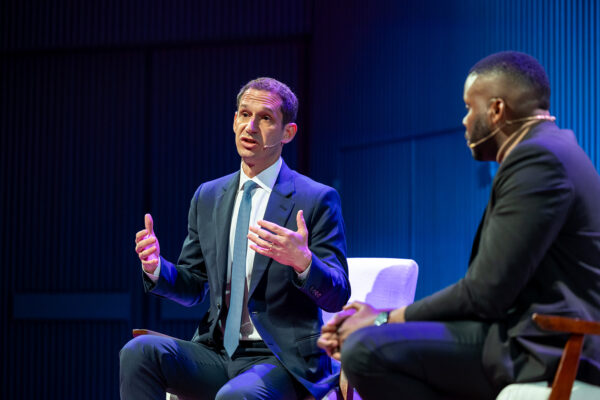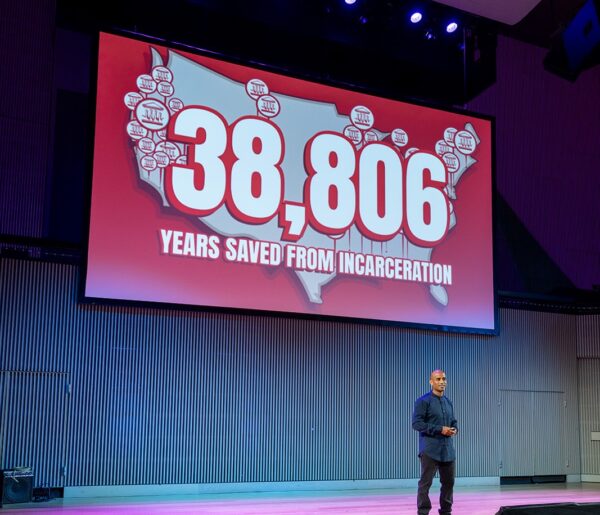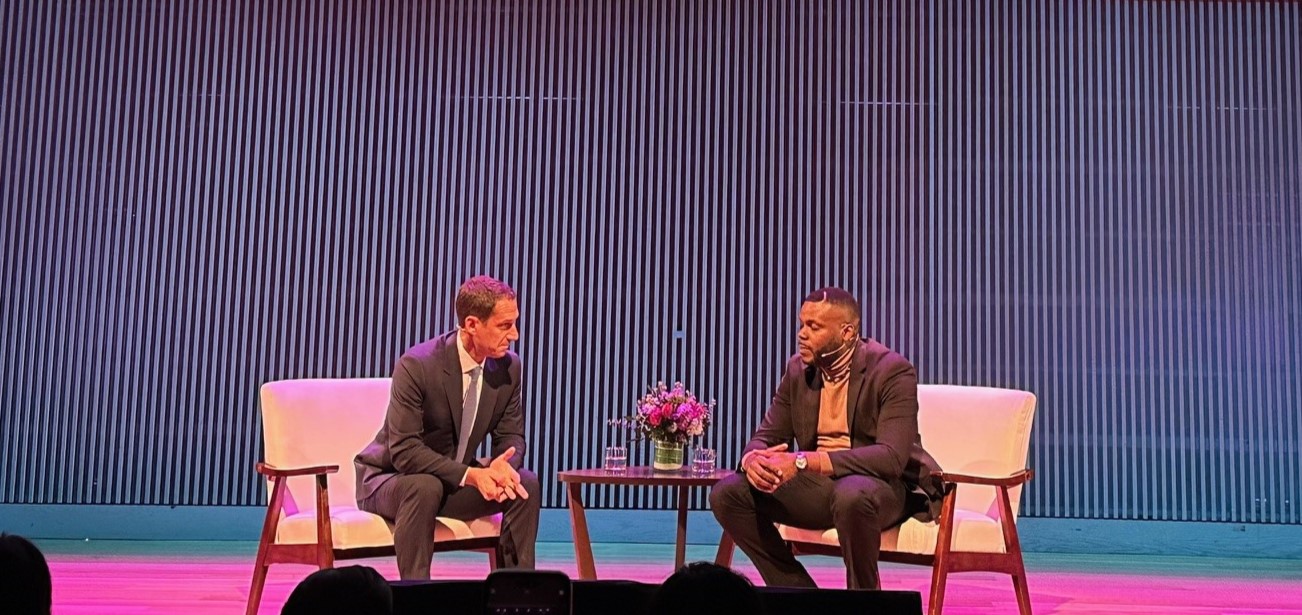“From a movement sensibility, you don’t try to prove you’re unique or special. You try to show the acumen of the approach by how well others can do exactly what you do even better.” This quote by Raj Jayadev of Silicon Valley De-Bug encapsulates the spirit of a recent event about collective responsibility. Advocates, community leaders, and policymakers came together to discuss human rights, social justice, and systemic change for International Human Rights Day. The event was not just about raising awareness—it was about inspiring action by modeling solutions and how we all can contribute to advancing human rights when working together.
Two key themes emerged from the day:
- Philanthropy has a role as a catalyst for change
- The best solutions begin with those most affected by injustice

Philanthropy as a Catalyst for Change
One of the most impactful messages came from a discussion between San Francisco Mayor-elect Daniel Lurie and former Stockton mayor Michael Tubbs, who discussed topics around philanthropy’s unique role in addressing inequity. Tubbs posed a compelling question: “If philanthropy can’t take risks, who can?” This challenges us to rethink how we view philanthropy—not just as a vehicle for charity, but as a bold catalyst for systemic change. By testing innovative ideas, philanthropy can serve as a prototype for larger policy reforms.
“Think about the work around basic income. Now, we have 60 pilots and over $350 million in government funding, but it started with philanthropy. It started with catalytic capital, with someone saying, ‘We care about this issue of human rights and poverty, what can we do to test it and see what works?’ Philanthropy has to be ahead of government and model for government what is possible,” Tubbs said.
“Philanthropy is an indictment in the ways in which policy is failing. Every single [philanthropic] program is a policy failure. The goal is to move from charity to justice and figure out how to model what works, so public officials who want to do good have the toolkit as to how to do it.”
This insight is a call to action for all of us. Philanthropy must go beyond charity—it should be a tool for justice. Whether it’s supporting a cause or piloting new solutions, we need to ask ourselves: What risks are we as a sector and as individuals willing to take to build a more just world? How can we lead the way and model the change governments and institutions fail to address?

Empowering Communities to Lead the Way
Throughout the event, various discussions made it clear that the best solutions begin with those most affected by injustice. Conversations around criminal justice highlighted the critical role of grassroots movements in advancing reform. Advocates Collette Flanagan from Mothers Against Police Brutality, Raj Jayadev from Silicon Valley De-Bug, and Alec Karakatsanis from Civil Rights Corps shared powerful stories of how community members, once victims of the criminal justice system, are now the ones leading the fight for change.
The fight for justice is not a passive experience—it’s something we actively contribute to. It’s important to amplify the voices of those directly impacted by injustice and stand with them in the face of challenges. Real, lasting change is built from the ground up, and it’s our collective responsibility to support these communities with the necessary resources and advocacy to create an equitable society for all.
Philanthropy plays a pivotal role in advancing human rights by acting as a catalyst for change, especially by modeling how to best work with communities when governments fall short of addressing critical community needs. By supporting community-based organizations and grassroots movements, philanthropy can help amplify the voices of those most affected by injustice. Philanthropy must also follow the lead of these communities, ensuring that solutions, strategies, and programs are designed with their needs and insights at the forefront. In doing so, we can help build a more just, equitable, and compassionate world.
Learn more about the featured organizations to gain insights into their impactful contributions in the fight for human rights:


